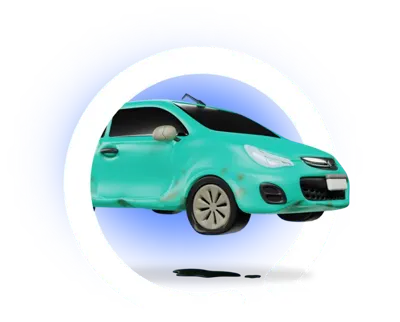
Planning on going abroad this summer? You’re not alone. Countless UK motorists are looking at hitting the road to all sorts of summer destinations. But if you’re planning to drive abroad from the UK, you’ll need to make sure you’re prepared. Paperwork is one of the most obvious things you’ll need to sort out, but it’s also a good idea to get yourself familiar with driving customs and local expectations of the country in which you’re intending to drive.
We’re all about keeping things simple here at EMR Vehicle Recycling – it’s one of the main reasons why we make sure to take care of as much of the paperwork as we can when you scrap your car with us. In the spirit of keeping things simple for you, we’ve laid out some of the most important considerations you need to bear in mind before you kick off your holiday!
Check the driving laws in your destination country
We’ll start with, arguably, the most important one. Every country has its own driving rules and - even within Europe - the regulations can vary more than you might expect. Some countries require daytime running lights at all times, others have strict blood alcohol limits that are lower than the UK’s, and some have zero tolerance for even the smallest technical infractions. Speed limits often differ too – both in their values and in how they’re enforced. For example, in France and Germany, it’s common to find speed limits that vary depending on the weather, while in some regions of Italy, cameras monitor average speeds rather than spot speeds.
You’ll also find significant differences in how right of way works, how roundabouts are handled, and what fines or penalties you could face for violations. In many places, on-the-spot fines are issued by police and, in some cases, they may even ask for cash payments. It’s a good idea to research these details beforehand, as it can really help to avoid misunderstandings and penalties, especially given language barriers. Official government websites, national motoring organisations, and reputable travel forums are all good places to look for reliable information.
Sort your insurance and breakdown cover
This is one you probably had covered already, but it’s still worth highlighting. Before you travel, check whether your current car insurance policy provides cover for driving abroad. Most UK insurers will offer basic third-party cover as a legal minimum within the EU, but this won’t usually protect you against theft, fire or damage to your own vehicle. You may need to arrange a temporary upgrade to fully comprehensive cover for the duration of your trip. Make sure you have written confirmation of what is and isn’t included - and don’t rely on assumptions based on previous trips.
Breakdown cover is just as important, especially if you’re driving long distances or through rural areas. Needless to say, it can be hugely stressful to find yourself stranded in a foreign country without local language skills or access to trusted mechanics. It’s worth looking for a policy that offers roadside assistance, recovery to the UK, if needed, and access to English-speaking support staff. Some insurers also provide onward travel or hotel costs, if you’re unable to continue your journey. That can be a lifeline in the event of a serious mechanical failure.
Carry the right documents at all times
Driving abroad means carrying more paperwork than you might be used to. You’ll need your full, valid UK driving licence, your vehicle’s V5C logbook (or a VE103 certificate, if it’s a lease or hire vehicle), proof of insurance and possibly an International Driving Permit (IDP) too, depending on your destination. For example, you might need an IDP to drive in countries like Albania, or if you hold a paper licence, or one issued in Gibraltar, Guernsey, Jersey or the Isle of Man.
Some countries also require proof of vehicle tax or emission certificates, especially in low-emission zones. It’s a good idea to store all these documents together in a folder or wallet you can keep in the glovebox or another secure, easily accessible part of the car.
Don’t forget to bring your passport and travel insurance too, as these may be needed in the event of an accident or traffic stop. Keeping it all together like this can help you skip some uncomfortable conversations.
Make sure your vehicle meets local requirements
Many European countries require specific equipment to be carried in your car by law. This can include hi-vis vests for all occupants, warning triangles, spare bulbs, headlamp beam deflectors and even winter tyres or snow chains at certain times of year. Even if you don’t think you’ll need them, it’s worth double-checking you’ve got them – otherwise it can lead to on-the-spot fines or the refusal of entry to some areas. Crucially, make sure to check the requirements for each country on your route – not just your final destination.
You’ll also need to make sure your car is visibly marked, if necessary. GB stickers are no longer recognised in many places, so you’ll need to use a UK sticker or have a number plate with the UK identifier instead. Some older number plates may still show ‘GB’ without a flag, which is annoyingly now out of date.
Additional rules may well apply if you’re towing a trailer or caravan, such as fitting extra mirrors or using separate stickers. Give them a final once-over before you set off, so you can tell if they’re properly fitted to expectations – police abroad can be a lot stricter about these details than some UK drivers expect.
Watch out for tolls, emissions zones and charges
By now, Clean Air Zones are pretty familiar to most of us here in the UK, whatever you may think of them. They’re also common in other areas of Europe, and the world at large. Toll roads, city congestion charges, and emissions-based fees are practically everywhere, and they’re often enforced automatically via number plate recognition. You’ll need to pay these in advance, during your journey, or immediately afterwards, depending on the system in place. In France, Spain, and Italy, many motorways use ticket-based toll booths, while countries like Switzerland and Austria require you to purchase and display a vignette – a type of pre-paid sticker - on your windscreen.
Emissions zones are becoming more common in major cities like Paris, Milan and Berlin, all of which have strict environmental rules that restrict entry for vehicles that don’t meet certain emission standards. You may need to register in advance, buy a special pass, or avoid the area altogether. Penalties for non-compliance can be severe and are often enforced automatically, so there’s little chance of appealing them if you’re caught. That can really put a downer on the holiday, not to mention add some hefty, unexpected costs to what’s already probably going to be a pretty expensive period. Just one more reason why it’s always best to double-check!
Holidays abroad can be pretty taxing on family cars, especially if there’s a lot of long-distance driving involved. If you think that yours won’t make the distance, that’s exactly where we can help here at EMR Vehicle Recycling.
With more than 70 years of experience to our name, we’re committed to getting you the very best price. What’s more, it couldn’t be easier – all you need to do is enter your car reg and postcode into the fields on our homepage, and you’ll have an instant online quote before you can say scrap my car. How much could yours be worth?

